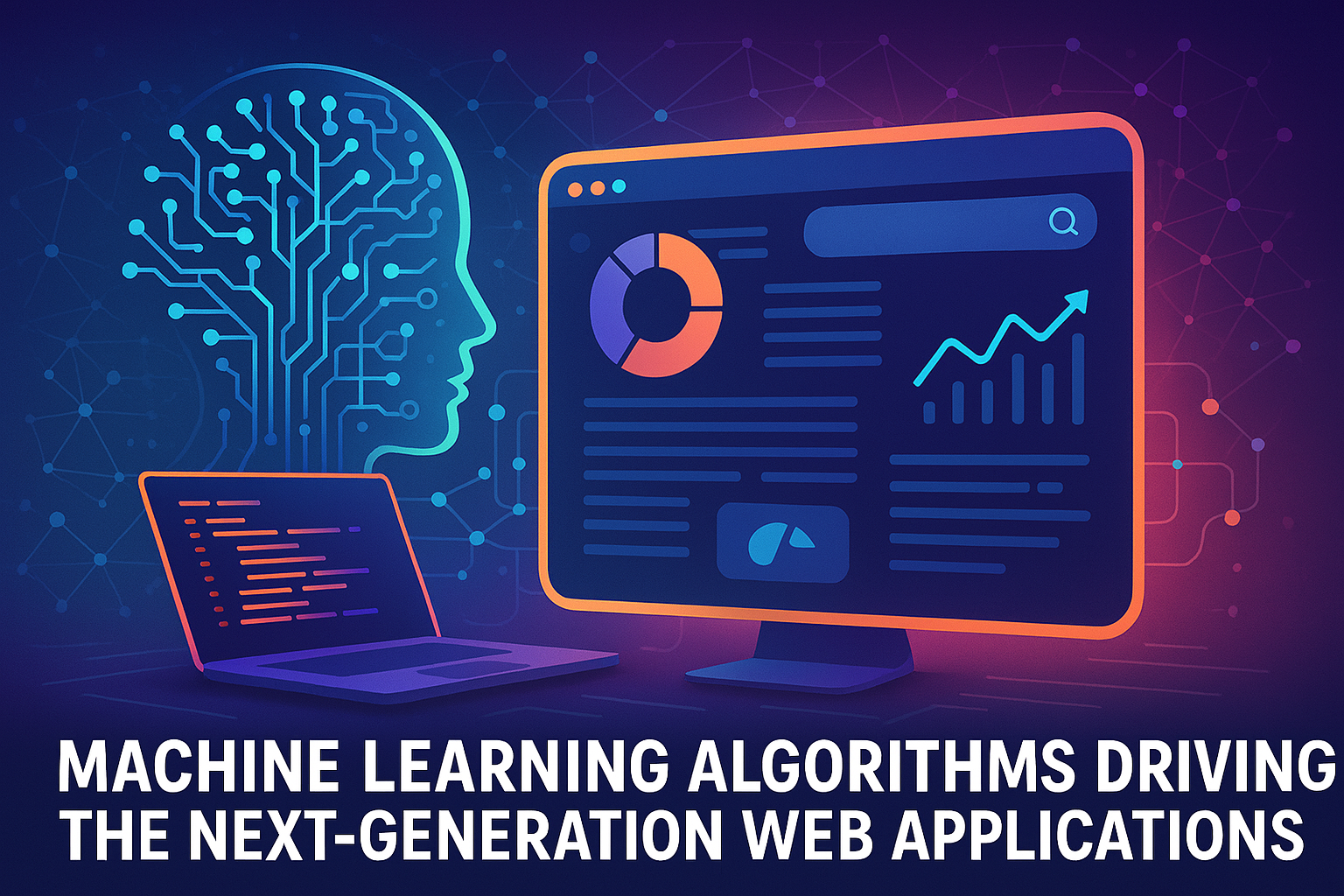
🚀 Introduction
Web applications are evolving rapidly, and Machine Learning (ML) is at the heart of this transformation. From personalized recommendations to smart decision-making, ML is enabling web apps to become smarter, faster, and more user-centric.
🤖 What is Machine Learning?
Machine Learning is a branch of Artificial Intelligence that empowers systems to learn from data, identify patterns, and make decisions with minimal human input.
🔍 Why Machine Learning Matters for Web Applications
- Dynamic UX: Real-time content personalization
- Improved Retention: Behavioral insights and predictions
- Faster Decisions: Automated intelligence
- Scalable Automation: Handles tasks like moderation and analytics
🧪 Top Machine Learning Algorithms Powering Web Apps
1. Linear Regression
Used for: Trend forecasting, analytics
Example: Predicting website traffic over time
2. Decision Trees & Random Forest
Used for: Product recommendations, fraud detection
3. K-Nearest Neighbors (KNN)
Used for: User similarity matching, friend suggestions
4. Support Vector Machines (SVM)
Used for: Email spam detection, image classification
5. Naïve Bayes
Used for: Sentiment analysis, categorizing user feedback
6. Neural Networks & Deep Learning
Used for: Chatbots, voice assistants, real-time image processing
ML algorithms make it possible for web apps to think, adapt, and evolve—just like humans do.
📱 Real-World Applications
| Company | Use Case | Algorithm Type |
|---|---|---|
| Netflix | Movie recommendations | KNN / Neural Networks |
| Face tagging, friend suggestions | Deep Learning | |
| Autocomplete, search prediction | Neural Networks | |
| Amazon | Product recommendations | Random Forest |
| Spotify | Music recommendations | Collaborative Filtering |
🎯 Benefits of ML in Web Apps
- ⚡ Real-time learning and adaptation
- 🔒 Enhanced fraud and threat detection
- 🎯 Personalized user journeys
- 📈 Predictive business insights
- 🧠 Automation of complex workflows
⚠️ Challenges
- 📊 Requires large datasets
- 🧠 Algorithm complexity
- 💡 Needs skilled developers and data scientists
- 🔄 Models need regular updating
🔮 The Future of ML in Web Development
As tools like TensorFlow.js, Scikit-learn, and ONNX become more powerful, web developers can easily embed ML into both frontend and backend systems. The future is about real-time personalization, smart automation, and proactive apps that respond even before the user acts.
💡 Final Thoughts
Machine Learning is no longer a buzzword—it’s the engine driving the smartest, most responsive web applications today. Embracing ML now means staying ahead in the digital race.
Want to future-proof your web app? Start integrating machine learning—now!